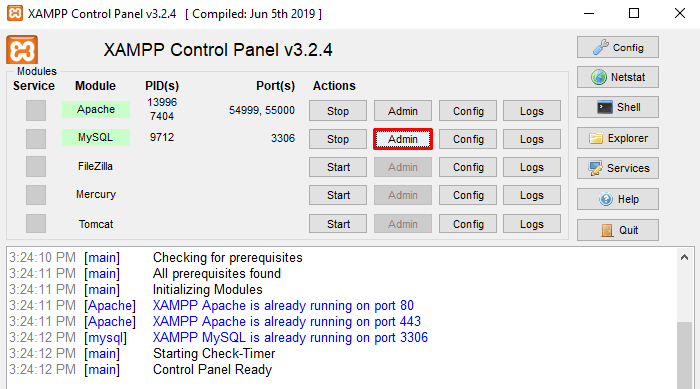

During the install, you’ll be prompted for a password of the database’s admin user (which you should have set during mysql_secure_installation), and a new password to secure phpMyAdmin with.
Phpmyadmin root password set install#
This will walk you through changing the root password, disabling remote logins, and removing the test database.Īfter that, you can install phpMyAdmin as usual. MySQL provides a handy utility for performing some basic security tasks: sudo mysql_secure_installation Before you even start installing phpMyAdmin, your instance of MySQL should be secure. PhpMyAdmin runs on the LAMP stack (Linux, Apache, MySQL, PHP). And phpMyAdmin is usually only secured with a simple password. If an attacker gains access to the web panel, they’ll have access to everything. phpMyAdmin has full unrestricted access to your database, as it’s intended to replace command line direct access. It’s a very useful tool, but it’s a disaster for security. PhpMyAdmin circumvents this to provide you a web interface for managing your database. There’s no way for an attacker to gain access short of cracking into the whole server. If you had an application also running on that server, it would communicate directly. Usually, you’d have a database that would run on your server and only accept connections from localhost or maybe from another trusted server. Here are a few ways to mitigate the risks involved with runing phpMyAdmin. PhpMyAdmin is a great tool for managing a MySQL database, but putting access to your database behind a web interface is an major security problem.


 0 kommentar(er)
0 kommentar(er)
